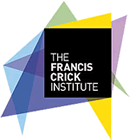Dr A Wack, Dr C Odendall
No more applications being accepted
Funded PhD Project (Students Worldwide)
About the Project
This 4-year PhD studentship is offered in Dr Andreas Wack Group based at the Francis Crick Institute (the Crick) and Dr Charlotte Odendall based at King’s College London.
Salmonella and Shigella are bacterial pathogens causing forms of gastroenteritis that can sometimes be fatal. Both bacteria use virulence mechanisms termed type III secretion systems (T3SS): molecular syringes that enable the injection of effectors proteins or toxins into host cells. These weapons enable them to invade the epithelium, replicate within host cells and induce a strong inflammatory response in the intestine1.
The first barrier against such invasive microorganisms are epithelial cells at mucosal surfaces. Protection of barriers and early detection of microbes are key to immunity in the mucosa as they permit the eradication of pathogens before an infection is established. We study type III interferons (IFNs), emerging regulators of immunity at mucosal sites2. Also known as IFNλs, type III IFNs are produced along cytokines and type I IFNs (IFNα, β) in response to detection of microbes by epithelial cells and innate immune cells. IFNλs are important for the clearance of numerous viruses, but their specific roles in the defence against bacterial pathogens remain poorly understood. We have shown that type III IFNs are induced in response to bacteria, and that IFNλ (but not IFNβ) treatment of polarized epithelial cells protects epithelial barriers from damage mediated by Salmonella and Shigella in vitro3. The mechanism behind this protection, and whether this protection is also conferred in vivo will be the focus of this project.
We will :
- Aim 1: Confirm the protective role(s) of IFNλs against Salmonella and Shigella infection in vivo
- Aim 2: Identify if epithelial or immune cells are the relevant targets of IFNλ action in these models
- Aim 3: Identify the mechanisms that mediate these protective effects through in vitro and in vivo experiments
Our preliminary work suggests that type III IFNs are protective in Salmonella infection. WT or IFNLR KO mice will be orally infected with Salmonella or Shigella4. In parallel we will inject mice with recombinant IFNs to test if treatment with IFN protects WT mice from infection. At different time points, mice will be sacrificed and different organs will be collected for enumeration of live bacteria by colony forming unit (CFU) plating. We will also measure IFN and cytokine production by quantitative reverse transcription PCR (RT-qPCR) and ELISA. By imaging of stained tissue sections we will assess relevant hallmarks of pathology. We are interested in both sides of the interaction between pathogens and the immune system. This includes the virulence mechanisms deployed by Salmonella and Shigella to cause disease. We have found that some of the toxins injected by the T3SSs can block IFN expression or signalling. In parallel work, we will study existing strains with mutations in these toxins using the same in vivo models. As infection with these strains produces more IFNs, this work will also inform on the roles of IFN in these disease models (Aim1).
We will then determine if epithelial or immune cells are the targets of IFNλs in these infections models. We will generate bone marrow chimeras where IFNLR will only be lacking on immune cells. From our collaborators, we will also obtain cell-type selective KOs, where only epithelial cells or neutrophils are lacking IFNLR5 (Aim2).
Finally, the mechanism of epithelial barrier protection by type III IFNs will be studied in vitro and in vivo. We hypothesise that IFNλs reinforce epithelial barriers in a manner independent of transcription. This will be tested using inhibitors of transcription or translation. We will then study regulators of tight junction function such as actomyosin contractility. If we find that neutrophils are the targets of IFNλs as part of Aim2, we will perform similar experiments to assess how IFNλs affect neutrophil functions, including potential effects on neutrophil migration (Aim3).
While the antiviral activities of type III IFNs are well-recognized, their roles against bacterial infections have been overlooked. This project will greatly contribute to our understanding of type III IFN regulation and functions which will benefit our knowledge of host-microbial interactions at mucosal surfaces.
Talented and motivated students passionate about doing research are invited to apply for this PhD position. The successful applicant will join the Crick PhD Programme in September 2019 and will register for their PhD at King’s College London.
APPLICATIONS MUST BE MADE ONLINE VIA OUR WEBSITE (ACCESSIBLE VIA THE ‘APPLY NOW’ LINK ABOVE) BY 12:00 (NOON) NOVEMBER 13 2018. APPLICATIONS WILL NOT BE ACCEPTED IN ANY OTHER FORMAT.
Funding Notes
Successful applicants will be awarded a non-taxable annual stipend of £22,000 plus payment of university tuition fees. Students of all nationalities are eligible to apply.
References
1. Pinaud, L., Sansonetti, P. J. and Phalipon, A. (2018)
Host cell targeting by enteropathogenic bacteria T3SS effectors.
Trends in Microbiology 26: 266-283. PubMed abstract
2. Wack, A., Terczyńska-Dyla, E. and Hartmann, R. (2015)
Guarding the frontiers: the biology of type III interferons.
Nature Immunology 16: 802-809. PubMed abstract
3. Odendall, C., Voak, A. A. and Kagan, J. C. (2017)
Type III IFNs are commonly induced by bacteria-sensing TLRs and reinforce epithelial barriers during infection.
Journal of Immunology 199: 3270-3279. PubMed abstract
4. Hapfelmeier, S. and Hardt, W.-D. (2005)
A mouse model for S. typhimurium-induced enterocolitis.
Trends in Microbiology 13: 497-503. PubMed abstract
5. Broggi, A., Tan, Y., Granucci, F. and Zanoni, I. (2017)
IFN-λ suppresses intestinal inflammation by non-translational regulation of neutrophil function.
Nature Immunology 18: 1084-1093. PubMed abstract

 Continue with Facebook
Continue with Facebook

